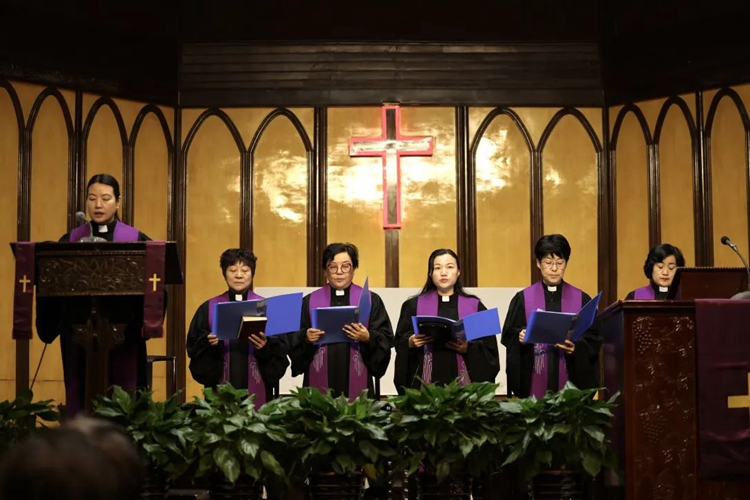Quite a few Chinese pastors share a consensus that prayer is the driving force for the church’s growth; it also tells the prosperity of a church.
For churches and Christians, prayer is the breathing of spiritual life. Once prayer stops, spiritual life won’t proceed. Therefore, prayer ministry is the top priority among various ministries in the church. But what kinds of prayer ministries do churches typically conduct in China?
Morning Prayer
The famous song "Morning Prayers of China" best interprets the morning prayer ministry of various churches and vividly portrays the faith life of countless devout Christians. Before dawn, quite some churches begin their morning prayers, with nearby congregants arriving one after another. Led by a prayer leader, they read the Bible, reflect on God's words, and then enter into prayer. During prayer, they align the messages of the Scripture with their own lives, while entrusting their daily tasks and responsibilities to the Lord. Meanwhile, morning prayer also covers public prayer topics, such as intercessions for the nation, society, the church, and needy believers.
In today's world, starting the day in serenity before God and receiving His grace and strength enables Christians to face the challenges ahead with more energy of the day and walk with Him. Some churches adjust their morning prayer times based on the season or the needs of their congregants, with some choosing to delay it until 7 or 8 o'clock.
Prayer Meeting
Some churches hold special prayer meetings, usually on a midweek evening. The prayer session often comes after a simple sermon. Compared with morning prayer, prayer meetings tend to be longer, with a greater emphasis on public concerns, such as intercessory prayers for the nation, the city, lost souls, and various church ministries. Additionally, themed prayer meetings are often organized, such as those dedicated to students taking the college entrance examination, special prayers on Good Friday, and the World Day of Prayer.
Through prayer meetings, believers can pray for their own spiritual growth and personal needs, but more importantly, they foster care for their fellow members, concern for the development of the church, and focus on the kingdom of God, thereby experiencing continuous spiritual growth.
For example, a church in Ningbo held a Good Friday fasting and prayer meeting from 8:30 a.m. to 3 p.m. The service focused on the Seven Words of Jesus on the Cross, with the leader guiding participants to reflect and pray on each message, one at a time. The congregation responded with praise, prayer, and tears. At noon, The Passion of the Christ was also shown.
All-Night Prayer Meeting
Some churches also hold all-night prayer meetings, often on New Year's Eve. For example, a church in Hangzhou hosts three all-night prayer gatherings yearly, with the first on Good Friday, the second on Christmas Day, and the third on New Year's Eve.
In addition to the above prayer meetings, some churches have established a 24/7 prayer ministry throughout the year, which means someone is praying at all times. Such ministries are typically initiated when the church is promoting important initiatives, such as building a new construction. While daytime and evening hours are usually well covered, the early morning hours, especially around 3 or 4 a.m., are the most challenging, with the most struggling to rise. During these times, it is often the elderly Christians who step up to take on the responsibility. After the ministry or project is completed, some endeavors stop while others continue, with the prayer focus changing for other ministries of the church and the needs of believers as intercessory topics become more diverse.
Given the importance of prayer, some churches have dedicated prayer rooms, and numerous are equipped with prayer benches. Even in some churches lacking such facilities, the sight of believers in prayer is still a touching scene. In one church in northwest China, after the sermon, the congregation kneels on wooden benches to pray for the church’s construction ministry and for those who are weak or ill.
- Edited and Translated by Poppy Chan












